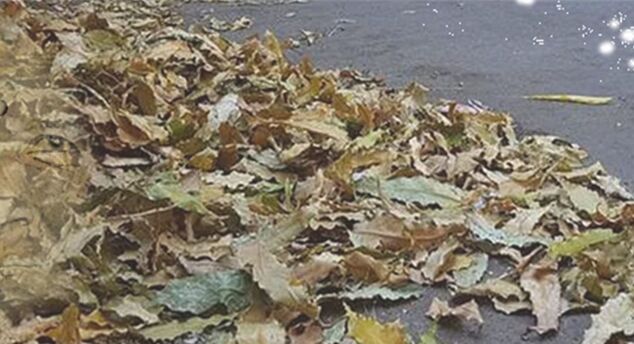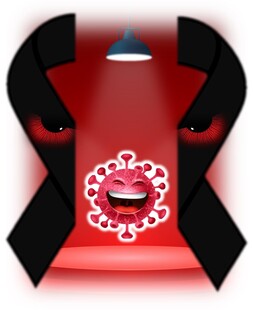|
Before she could reach the toilet, Dadi soiled herself. With great difficulty, ignoring her protesting joints and constant fear of falling, she cleaned it up. She did not want to wait for her servant to discover the mess she had made. Her servant scolded her loudly, especially when Dadi's son was not at home. She did not want her servant to abandon her. Dadi was so dependent on her servant for everything. In Rani’s case, she was the servant, and she was the one who had been abandoned. Dadi's news reminded me of Rani's story that I had heard some years ago. Rani was 11 or 12 when an earthquake destroyed her home and family in a small town in north India. One year later, after he collected the earthquake relief money from the government, her uncle, the only other survivor, kicked her out. Rani landed in Mumbai, where the people of the big city and their ways made her uncomfortable. Finally, she reached Pune and found employment with a family. She became the full-time caretaker to the old woman of the house. They forged an affectionate bond. The old woman promised Rani better days and a better living. Rani’s prime years passed her by as she lived for her dreams. Many years later, the old woman died. And Rani was back on the streets. From street to destituteShe found a job at a school. After some years, she started working at the home of the head of the school. When her bleeding and the pain in the abdomen did not ease, her employer took her to a government hospital. The diagnosis: cancer of the cervix, malignant and very advanced. Her employer then brought her to what Rani thought was another hospital. At the time of admission, she reassured her employer, “I will come back and work as soon as I get better.” Her employer snapped back, “I never want you to come back.” The palliative care centre admitted Rani as a destitute. Finally, living her lifeAs the pain subsided and she started feeling better, Rani did not know how to deal with the attention she was getting. The nurse often found her sleeping on the floor at night. “The bed makes me feel like a queen. I am more comfortable here.” Now that she had a new family, Rani suddenly became a child and started making fancy demands. Vada pav, puri bhaji, lassi and Coca Cola were among her favourites. “And please don’t get those from the canteen, buy it from outside.” The raging cancer would not let her keep anything down. One bite and she would throw up. One sip, and she would apologetically close the bottle and keep it away, to try again later. “No more fancy food; just eat what we give you,” the nurse said in mock anger. Rani laughed; the nurse helplessly joined in. The attendant gave her a bath, combed her sparse hair, and tied it into a thin bun. The security guard came with a flower. Would it look nice on her hair? One night, Rani died peacefully. She was 70. Gone, troubling noneThe employer sounded relieved on hearing of the death and reaffirmed that the institution was free to do what they thought fit. The institution had a signed document that authorized them to do what they felt right with the destitute before and after her death. The police had endorsed the document. The crematorium got a copy of the document too, along with the death certificate and a copy of the driver’s license of the person who took the body there. They all took care to make sure they would not be in trouble later. As for Rani, after some 50 years of serving others and 20 days of living for herself, she did not care anymore. Rani was not her real name. And very few know Dadi's name. Everything else above is the truth. For Rani then as for Dadi now, every day that they do not cause trouble for others and get scolded, is precious. Those are the days they experience a little love and dignity and forget they are no longer useful to others.
6 Comments
The new C is in the spotlight. The old C remains. There is no masking the fears about cancer. And there is no distancing the misconceptions.
Chanda. The name of the girl is not. But the snatches of conversation, more about her cancer than her, are all real. Father to doctor: “She keeps getting fever and is so weak.” Doctor to father: “Your child has blood cancer. We will have to start chemotherapy.” Mother to father: “But she is only five. How can she have cancer?” Chanda to mother: “Did you fight with Papa again? Don’t cry, I am there for you.” Father to mother: “Never again will we cry in front of her.” Father to mother: “I have no money left. Don’t know whom to ask. Let’s release an appeal.” Stranger to parents: “Saw your appeal. Oh, she likes cars! Come, bring her, let us go for a ride. Keep this money. Why does it matter who I am?” Mother to school principal: “Doctor said she is recovering and can start school. Please admit her.” Principal of school 1: “If other parents come to know, they will withdraw their children. As it is, we are constantly fighting with parents.” School 2: “What if her cancer spreads? Other children will also get it.” School 3: “We can’t let her skip class every time she has to go for treatment. What is the guarantee she won’t get it again?” School 4: “She must always wear a mask, sit separately and not mingle with other children.” Mother’s letter to father: “I am going. I don’t want to spend the rest of my life looking after a cancer patient.” Chanda to father: “Why are you crying? I am there for you.” |
AuthorVijayakumar Kotteri Categories
All
Archives
July 2024
|



 RSS Feed
RSS Feed

